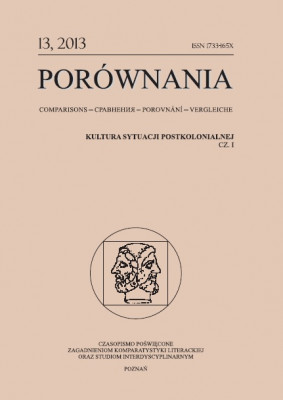„Kto ty jesteś? Polak mały...” Change in the Meaning of the Concepts of „the other” and „the Motherland” in the Polish post-1989 Prose
The article considers examples of the post-1989 Polish prose exposing the results of a long-term subaltern condition. These results get activated in relations with the Other. They are asymmetrical because they concern unequal subjects. The article posits that the phantasm of the motherland (that which is the most ‘self’) has a constructing form and selective character. It poses the thesis that the problem of the Polish petrified dominant narration with the motherland at the center of attention and subject identity marked with a specific relation to the Other is that it does not want to admit that cultural authority is created by the present time and not the past. There is a constant interchange in meaning – from forgetting to remembering and back – that takes place between them.
| Article Title | Type | Size |
|---|---|---|
| Hanna Gosk | [pdf] | [181 KB] |
